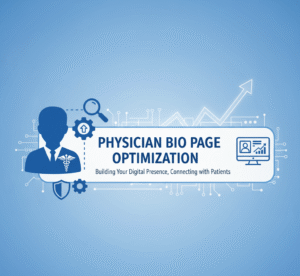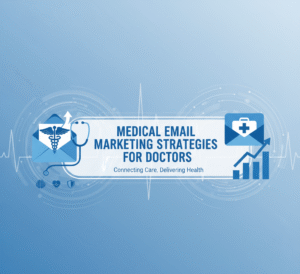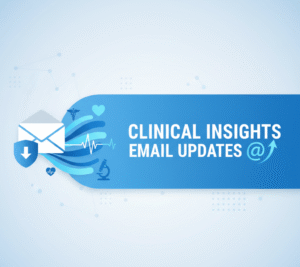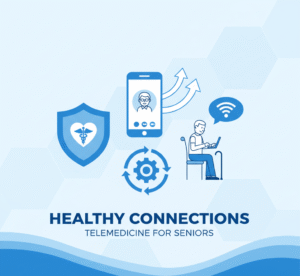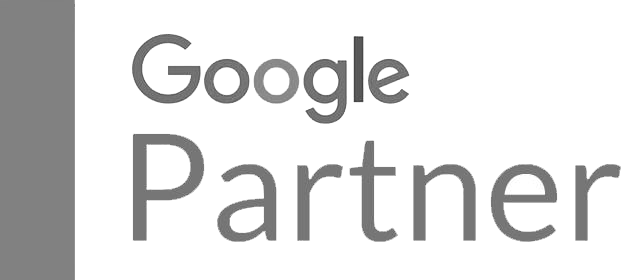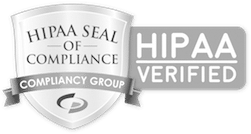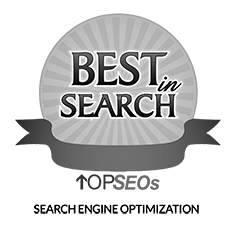“Improve your practice with effective patient acquisition strategies by using a blend of SEO and PPC to boost your online visibility and attract more patients.”
Attracting new patients is the lifeblood of any thriving medical practice. In today’s digital landscape, two powerful contenders stand out for patient acquisition: Search Engine Optimization (SEO) and Pay-Per-Click (PPC) advertising. Both aim to connect you with individuals seeking healthcare services, but they operate on different principles and offer distinct advantages.
This comprehensive guide will dissect SEO and PPC, exploring their strengths, outlining scenarios where one might shine, and demonstrating how a synergistic approach can significantly boost patient acquisition efforts. We’ll delve into practical examples relevant to medical practices and introduce you to a trusted partner capable of navigating this complex terrain.
Understanding the Fundamentals: SEO and PPC
Before comparing, let’s understand what SEO and PPC entail.
Search Engine Optimization (SEO) for Doctors:
Think of SEO as the art and science of optimizing your online presence to rank higher in organic (non-paid) search engine results pages (SERPs). When a potential patient searches for “best dermatologist near me” or “knee pain treatment Cairo,” SEO ensures your website appears prominently in the results.
This involves a multifaceted approach, including:
- Keyword Research: Identifying the terms your target patients are actively searching for.
- On-Page Optimization: Optimizing your website’s content, structure, and technical elements to align with relevant keywords and search engine algorithms. This includes optimizing page titles, headings, meta descriptions, content, and image alt text.
- Off-Page Optimization: Building your website’s authority and reputation through earning high-quality backlinks from other reputable websites, managing online reviews, and enhancing your local presence.
- Local SEO for Medical Clinics: Focusing on strategies that help your practice appear in local search results and Google Maps. This involves optimizing your Google My Business profile, garnering local citations, and encouraging patient reviews.
- Content Marketing for Healthcare: Creating valuable, informative, and engaging content (blog posts, articles, videos, infographics) that addresses patient concerns and establishes your expertise. This content naturally attracts organic traffic and positions you as a trusted resource.
- Technical SEO: Ensure your website is technically sound, with fast loading speeds, mobile friendliness, proper indexing, and a secure (HTTPS) connection. These factors are crucial for both user experience and search engine rankings.
Pay-Per-Click (PPC) Advertising for Medical Practices:
Conversely, PPC is a form of paid advertising where you bid on specific keywords relevant to your practice. When someone searches for those keywords, your ad appears at the top or bottom of the search results (often marked as “Ad”). You only pay when someone clicks on your ad, hence the name “pay-per-click.”
Key aspects of PPC for doctors include:
- Keyword Targeting involves selecting specific keywords to trigger your ads. This allows for the precise targeting of patients actively seeking your services.
- Ad Creation: Crafting compelling ad copy that entices clicks and highlights your unique selling propositions. Persuasive ad copy includes a strong headline, a clear call to action, and relevant keywords.
- Landing Page Optimization: Direct ad clicks to dedicated landing pages on your website designed to convert visitors into patients. These pages should be relevant to the ad and keyword and have a clear path for scheduling appointments or requesting more information.
- Budget Management: Setting a budget for your campaigns and bidding strategically on keywords to maximize your return on investment (ROI).
- Ad Extensions: Utilizing features like sitelink extensions (links to specific pages on your website), call extensions (allowing users to call directly from the ad), and location extensions (displaying your address) to enhance your ads and provide more value to searchers.
- Remarketing shows ads to users who have previously visited your website but haven’t converted. This helps re-engage potential patients and keeps your practice top-of-mind.
SEO vs. PPC: A Head-to-Head Comparison for Patient Acquisition
Now, let’s compare SEO and PPC across several key factors to understand their strengths and weaknesses in the context of patient acquisition for medical practices.
1. Speed of Results:
- PPC: Delivers almost immediate visibility. Once your campaigns are set up and approved, your ads can appear in search results within hours. This makes PPC ideal for generating quick wins and filling appointment slots in the short term.
- SEO: Takes time and consistent effort to yield results. Significant improvements in organic rankings can take weeks or even months. SEO is a long-term strategy focused on building sustainable online visibility.
2. Cost:
- PPC: Involves direct advertising costs. You pay for every click your ads receive, and the cost per click (CPC) can vary significantly depending on the competitiveness of the keywords. Highly competitive medical keywords can have high CPCs.
- SEO doesn’t involve direct ad spending. However, it requires time, effort, investment, and hiring SEO professionals or using SEO tools. While there’s no direct cost per visit, the overall investment can be substantial. In the long run, organic traffic is “free” because you don’t pay per click.
3. Targeting Precision:
- PPC: Offers highly granular targeting options. You can target specific demographics (age, gender, location), interests, devices, and the time your ads appear. This allows for precise reach to your ideal patient base.
- SEO: Targeting is primarily based on the keywords you optimize for. While you can target geographically through local SEO, the demographic and interest targeting options are less direct than with PPC.
4. Traffic Quality and Intent:
- SEO: Organic traffic often demonstrates strong intent. Users actively searching for specific medical information or services are more likely to be further along in their decision-making process.
- PPC: Traffic quality can vary. While you target specific keywords, some clicks might come from users still in the research phase or whose intent doesn’t perfectly align with your services. However, well-optimized campaigns with negative keywords can mitigate this.
5. Credibility and Trust:
- SEO: Ranking organically in search results can build credibility and trust with potential patients. Users often perceive organic results as more authoritative and trustworthy than paid advertisements.
- PPC: While effective for generating leads, ads are clearly labeled as “Sponsored,” which some users may view with slightly less trust than organic results. Consistent high-quality service and positive reviews can help bridge this gap.
6. Long-Term Value:
- SEO: Provides sustainable, long-term value. Once you achieve high rankings, you can continue to attract organic traffic and leads without ongoing ad spend. However, maintaining those rankings requires continuous effort.
- PPC: Offers immediate results but stops generating traffic and leads as soon as your budget runs out or your campaigns are paused. It requires ongoing investment to maintain visibility.
7. Click-Through Rate (CTR):
- PPC: Ads typically have a higher CTR than organic listings for relevant keywords due to their prominent placement at the top of the SERPs.
- SEO: While ranking in the top organic positions is crucial, the CTR for organic results can be lower than that of paid ads, especially for highly commercial keywords.
8. Conversion Rates:
- PPC: With well-optimized landing pages and targeted ad copy, PPC can achieve high conversion rates. You can directly influence the user journey from the ad click to a booking or inquiry.
- SEO: Organic traffic can also convert well, mainly if your website provides a seamless user experience and addresses the searcher’s needs.
9. Analytics and Tracking:
- Both SEO and PPC offer robust analytics and tracking capabilities. You can track website traffic, keyword performance, conversion rates, and other key metrics to measure the effectiveness of your campaigns and make data-driven optimizations.
When Does One Outperform the Other?
The optimal choice between SEO and PPC isn’t always clear-cut and often depends on your specific goals, budget, and the competitive landscape of your specialty and location. Here are some scenarios where one might outperform the other:
PPC Might Be the Better Choice When:
- You need immediate results: Launching a new practice, promoting a time-sensitive service (e.g., flu shots), or filling urgent appointment slots requires immediate visibility that PPC can provide.
- Targeting specific demographics or geographic areas: PPC’s granular targeting options are invaluable for reaching a specific patient segment or targeting a particular neighborhood. For instance, a fertility clinic might target women aged 25-45 in a particular city.
- Testing new services or offers: PPC allows you to quickly test the effectiveness of different ad copy, landing pages, and service offerings before investing heavily in long-term SEO efforts.
- Competing for highly competitive keywords: In some highly competitive medical specialties, it can be challenging to rank organically quickly. PPC offers a way to gain immediate visibility for those valuable keywords. For example, “cosmetic surgery Cairo” might be a highly competitive term where PPC can provide a faster route to potential patients.
- Running seasonal campaigns: PPC is ideal for promoting seasonal services or offers, such as allergy treatments in the spring or back-to-school physicals in the late summer.
- You have a limited SEO foundation: If your website is new or has limited organic visibility, PPC can help you start generating leads while you build your SEO foundation.
SEO Might Be the Better Choice When:
- You’re focused on long-term, sustainable growth: SEO builds a lasting online presence and provides consistent organic traffic and leads over time, reducing reliance on ongoing ad spend.
- Building authority and trust is paramount: Ranking organically for relevant keywords positions your practice as a trusted authority.
- Targeting informational keywords: Patients often use informational keywords (e.g., “symptoms of diabetes,” “what is physical therapy”) early in their research process. Ranking for these terms through SEO and content marketing can attract potential patients and establish you as a helpful resource.
- Your budget for ongoing advertising is limited: While SEO requires upfront and ongoing investment, the cost per acquisition through organic traffic can be significantly lower in the long run compared to PPC.
- Local presence is crucial: Local SEO is essential for attracting nearby patients for most medical practices. Optimizing your Google My Business profile and local citations is a cost-effective way to improve visibility in local searches.
- Content marketing is key to your strategy: Creating valuable content that answers patient questions and addresses concerns can attract organic traffic and build a loyal patient base.
Real-World Examples:
- Local SEO for a Specialty Clinic: A pediatric cardiology clinic in New Cairo might focus heavily on local SEO. They can effectively reach families in their immediate vicinity by optimizing their Google My Business profile, targeting local keywords like “pediatric cardiologist near me New Cairo,” and encouraging reviews from local parents. Their website would feature detailed information about their specialists, services, and contact information, all optimized for local search.
- Targeted PPC Ads for Urgent Care: An urgent care center in Maadi looking to increase patient volume on weekends might run targeted PPC ads for keywords like “urgent care open now Maadi” or “walk-in clinic near me.” Their ad copy would emphasize immediate care and convenience, and the landing page would provide clear directions and information about wait times. They could even use dayparting to ensure their ads only show during peak weekend hours.
- Combining SEO and PPC for a Dental Practice: A dental practice could use SEO to rank for broad keywords like “general dentist Cairo” and create informative blog content about dental hygiene. Simultaneously, they could run PPC campaigns targeting specific services like “teeth whitening Zamalek” or “dental implants Heliopolis,” driving immediate leads for higher-value procedures. Their landing pages for PPC would be specifically designed to encourage appointment bookings for those services.
The Power of Synergy: Combining SEO and PPC for Maximum Impact
The most effective patient acquisition strategy often involves a synergistic approach that leverages the strengths of both SEO and PPC. Here’s how you can combine them for maximum impact:
- Keyword Research Insights: Use PPC keyword data to identify high-performing keywords with strong conversion rates. Then, focus your SEO efforts on ranking organically for those valuable terms.
- Dominate the SERPs: A paid ad and a top organic listing for relevant keywords can significantly increase your visibility and click-through rate.
- Test and Optimize: Use PPC to test different messaging, offers, and landing pages quickly. The insights gained can then be applied to your SEO content and website optimization efforts.
- Address Different Stages of the Patient Journey: Use SEO to attract patients in the early research stages with informative content and PPC to target those with immediate needs and a higher intent to book an appointment.
- Remarketing Strategies: Use PPC remarketing to re-engage website visitors who came through organic search but didn’t convert initially.
- Brand Building: Consistent visibility through organic and paid channels can enhance brand recognition and build trust over time.
- Fill the Gaps: If your SEO efforts haven’t yet yielded top rankings for crucial keywords, PPC can fill those visibility gaps and ensure you’re still reaching potential patients.
Introducing InvigoMedia: Your Partner in Patient Acquisition Success
Navigating the complexities of SEO and PPC in the healthcare industry requires specialized knowledge and experience. That’s where InvigoMedia comes in. We are a top-tier digital marketing partner dedicated to empowering medical practices to efficiently and ethically achieve patient acquisition goals.
With years of experience working with doctors, clinics, and hospitals, we deeply understand the unique challenges and opportunities within the healthcare landscape. Our team of experts specializes in crafting tailored digital marketing strategies that integrate SEO, PPC, content marketing, and data analytics to deliver measurable results.
How InvigoMedia Helps You Acquire More Patients:
- Strategic SEO for Doctors: We conduct in-depth keyword research to identify the terms your ideal patients seek. We optimize your website’s on-page elements, build authoritative backlinks, and implement local SEO strategies to ensure you rank prominently in organic search results, particularly for local searches relevant to your practice in areas like New Cairo City and beyond. Our content marketing strategies focus on creating valuable, patient-centric content that establishes your expertise and attracts organic traffic.
- High-Performing PPC Campaigns for Medical Practices: We develop and manage targeted PPC campaigns that drive qualified leads to your practice. From meticulous keyword selection and compelling ad copy creation to optimized landing page design and rigorous performance monitoring, we ensure your paid advertising delivers a strong return on investment. We understand the nuances of healthcare advertising regulations and ensure all campaigns are compliant and ethical.
- Data-Driven Insights and Analytics: We believe in the power of data. We track key performance indicators (KPIs), analyze campaign performance, and provide transparent reporting to demonstrate the impact of our strategies on your patient acquisition efforts. Our insights allow for continuous optimization and improvement of your marketing campaigns.
- Content Marketing that Educates and Engages: Our content marketing team creates valuable and informative content that resonates with your target audience, addresses their health concerns, and positions you as a trusted resource. This content attracts organic traffic, nurtures leads, and builds patient trust.
- Ethical and Patient-Centric Approach: We understand the importance of ethical marketing practices in healthcare. Our strategies prioritize patient well-being, privacy, and accurate information. We focus on building long-term patient trust and fostering a positive online reputation for your practice.
- Tailored Strategies for Your Unique Needs: We recognize that every medical practice is unique. We take the time to understand your specific goals, target audience, services, and competitive landscape to develop a customized digital marketing strategy that aligns with your objectives and maximizes your patient acquisition potential in locations like Cairo Governorate.
By partnering with InvigoMedia, you can focus on providing exceptional patient care while we handle the complexities of attracting new patients through effective and ethical digital marketing strategies. Let us help you fill your appointment books, build your authority online, and achieve sustainable growth for your medical practice.
FAQs: Patient Acquisition for Doctors – SEO vs. PPC
Q: Which is more critical, SEO or PPC, for a medical practice?
A: Neither is inherently more important. The optimal approach depends on your specific goals and circumstances. PPC offers immediate visibility, while SEO provides long-term, sustainable growth. Often, a combined strategy yields the best results.
Q: How long does it take to see results from SEO for a doctor’s office?
A: It typically takes several months to see significant organic ranking improvements. SEO is a long-term strategy that requires consistent effort and optimization.
Q: How much should a medical practice budget for PPC advertising?
A: PPC budgets vary widely depending on location, specialty, and competition. Setting a budget that aligns with your patient acquisition goals and continuously monitoring and optimizing your campaigns for the best ROI is essential.
Q: Can I do SEO for my medical practice myself?
A: While you can implement some basic SEO tactics yourself, achieving significant and sustainable results often requires the expertise of SEO professionals who understand the complexities of search engine algorithms and healthcare marketing.
Q: What are some key metrics to track for patient acquisition efforts?
A: Key metrics include website traffic, organic rankings, keyword performance, click-through rates (CTR), conversion rates (e.g., appointment bookings, contact form submissions), cost per acquisition (CPA), and return on investment (ROI).
Q: How can content marketing help with patient acquisition?
A: Creating valuable and informative content (blog posts, articles, videos) can attract organic traffic from patients searching for health information. It also establishes your expertise, builds trust, and nurtures leads.
Q: What is local SEO for doctors, and why is it important?
A: Local SEO optimizes your online presence to attract patients in your immediate geographic area. It’s crucial for medical practices, as most patients prefer local healthcare providers. This involves optimizing your Google My Business profile, local citations, and online reviews.
Q: Are there any ethical considerations for online marketing in healthcare?
A: Yes, it’s crucial to adhere to ethical marketing practices, including being transparent about your qualifications and services, protecting patient privacy, and avoiding misleading or exaggerated claims.
Q: How can Invigo Media help my medical practice with patient acquisition?
A: Invigo Media offers comprehensive digital marketing services tailored to the healthcare industry, including expert SEO, targeted PPC advertising, engaging content marketing, and data-driven analytics. We develop customized strategies to help you attract more patients efficiently and ethically.


